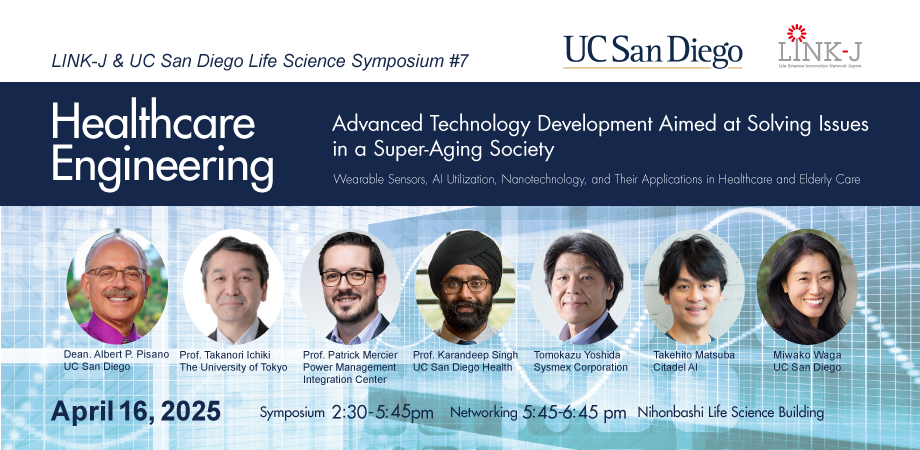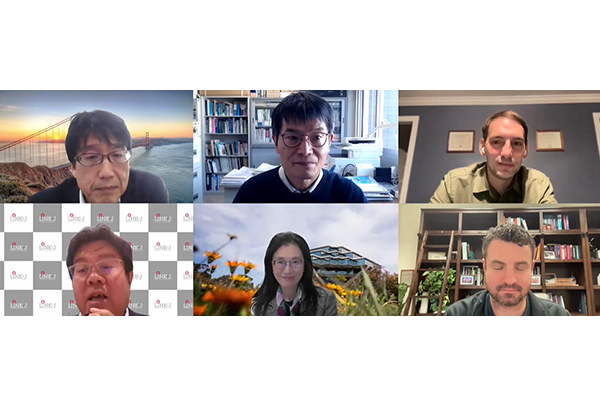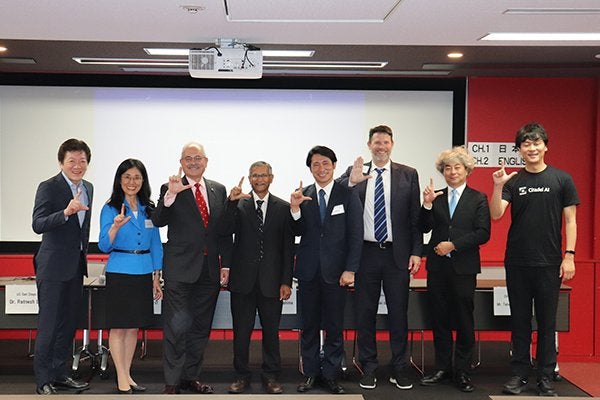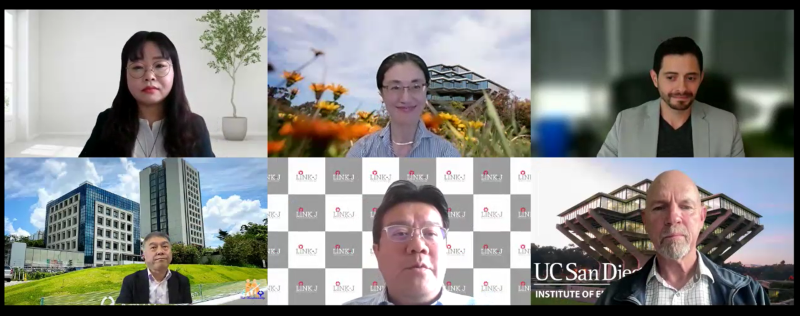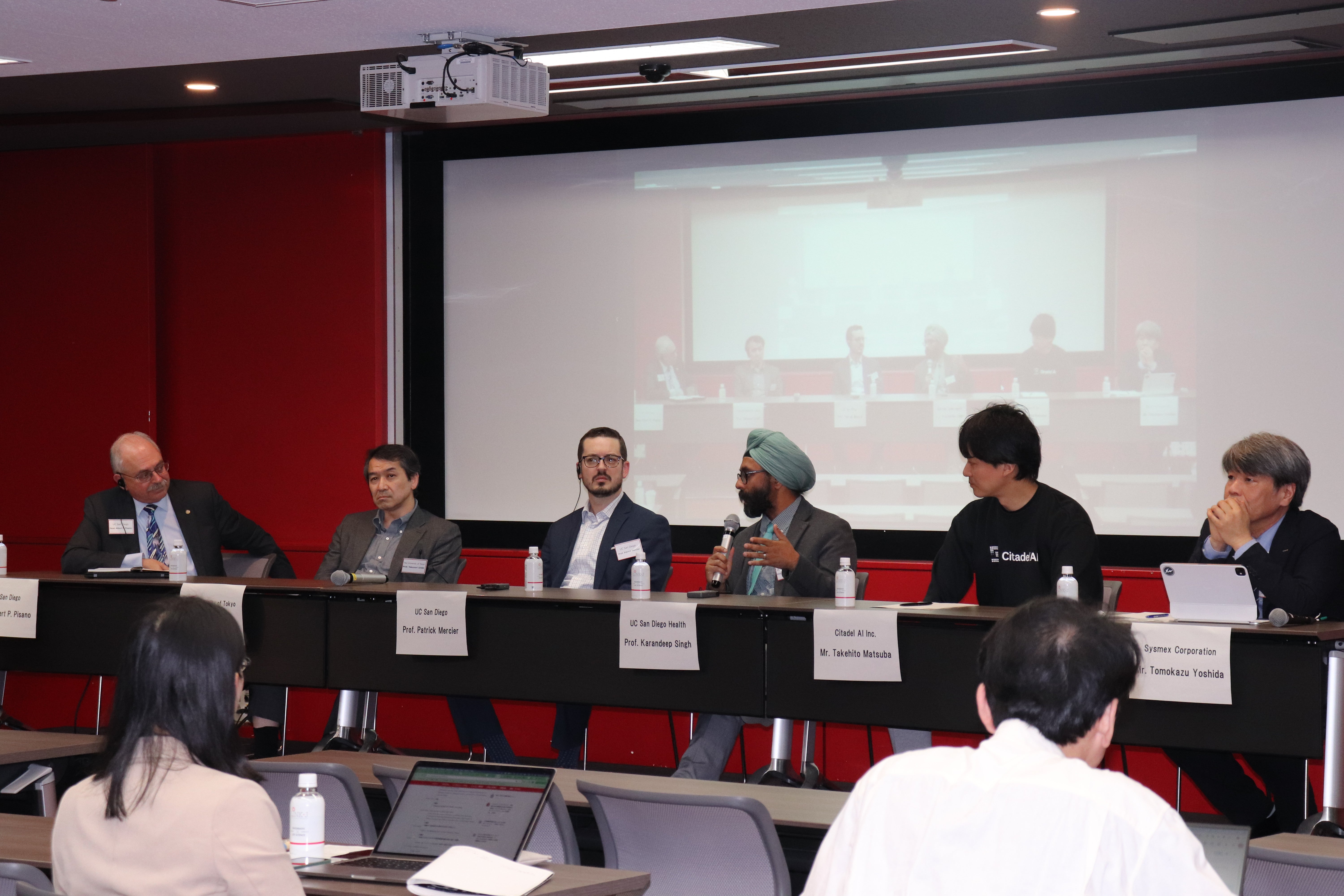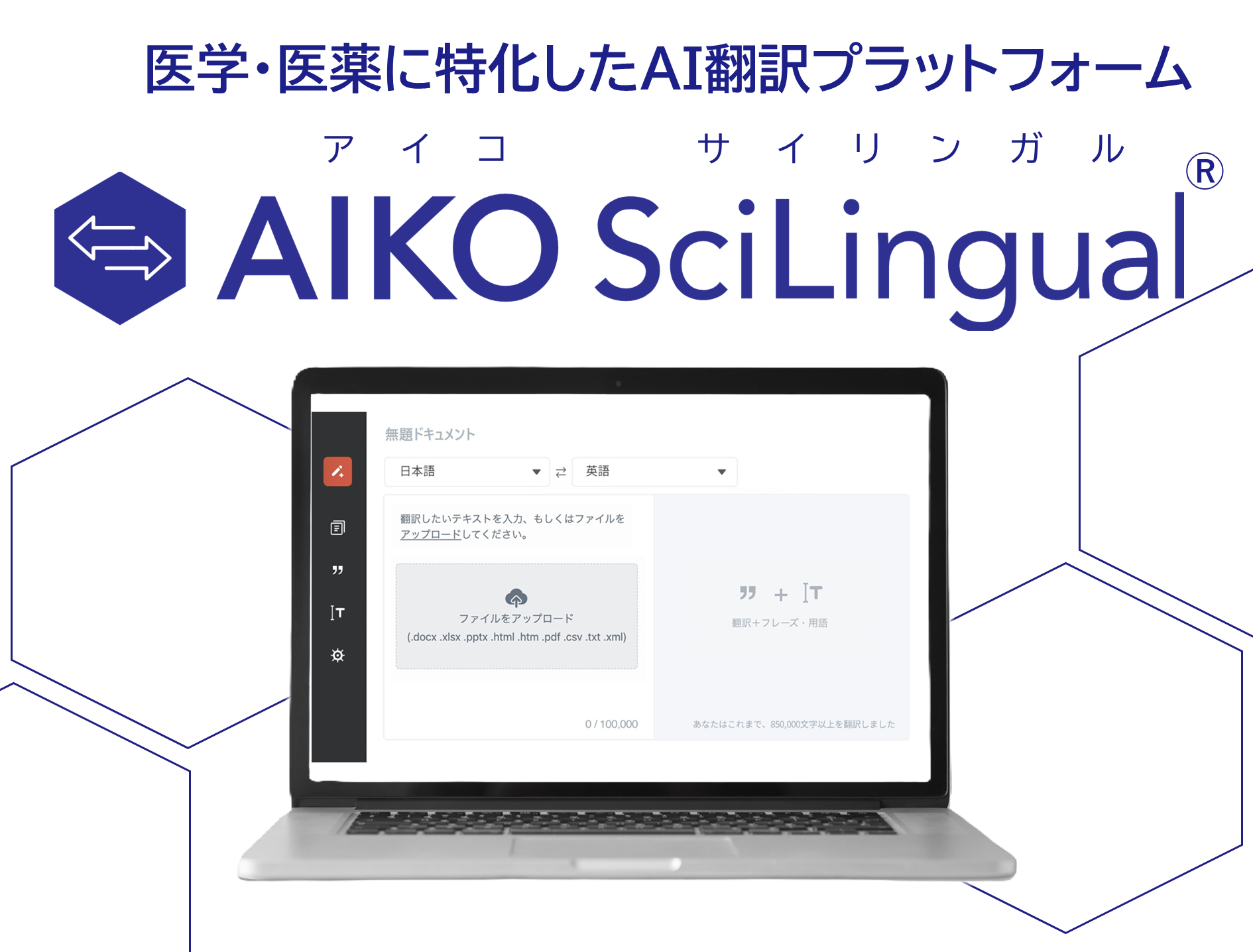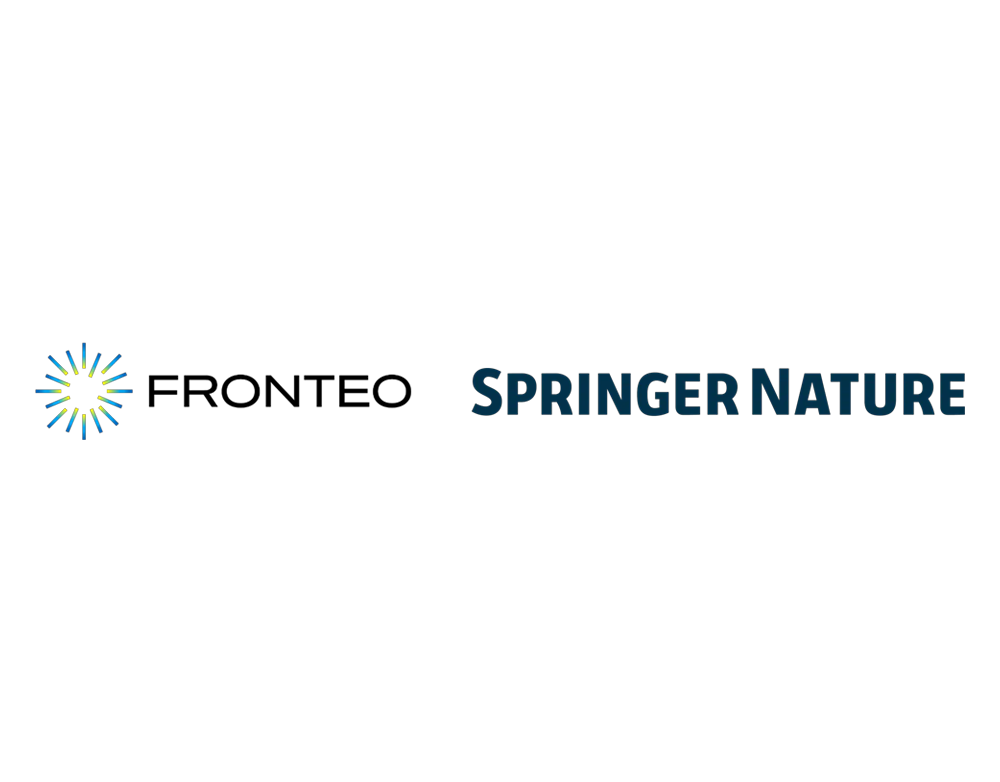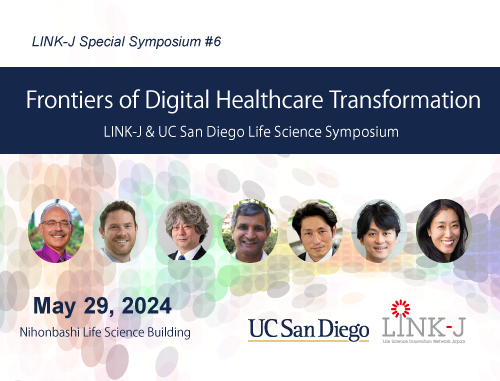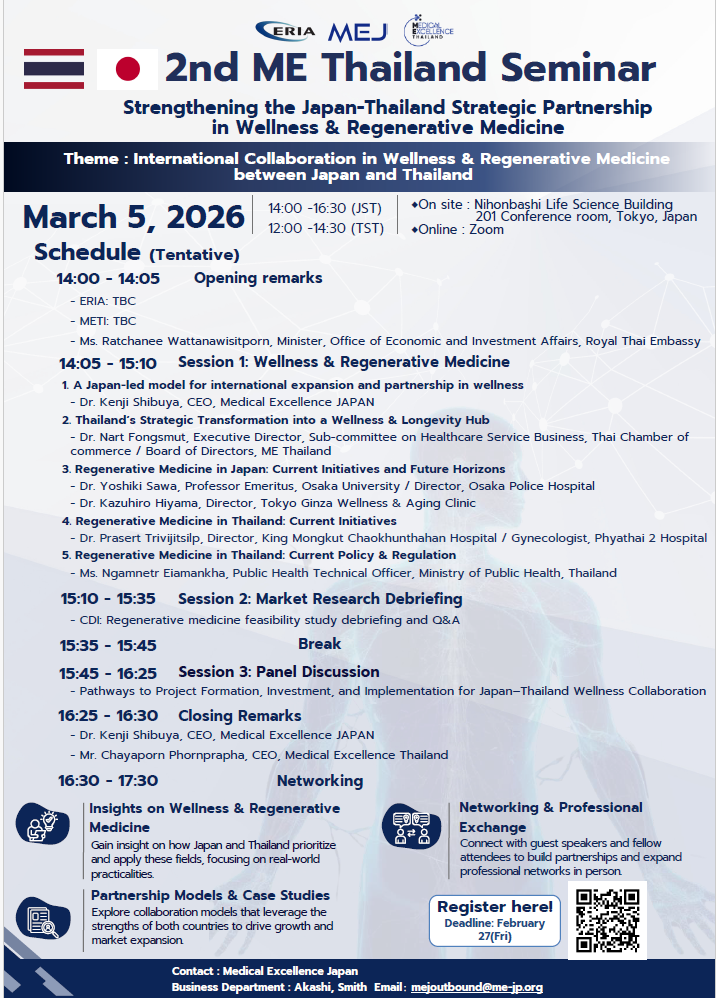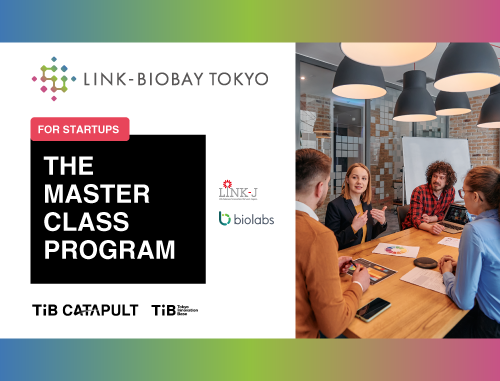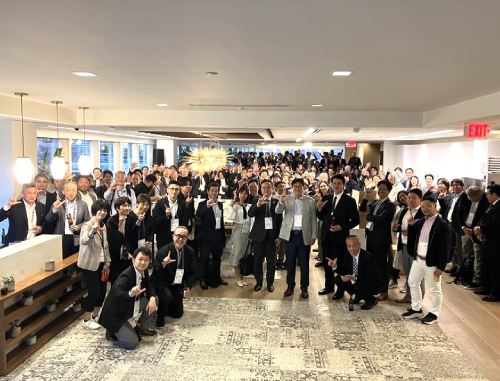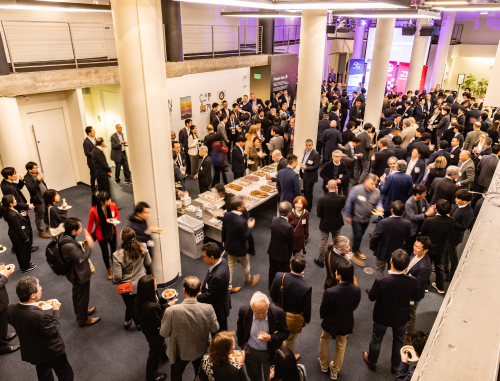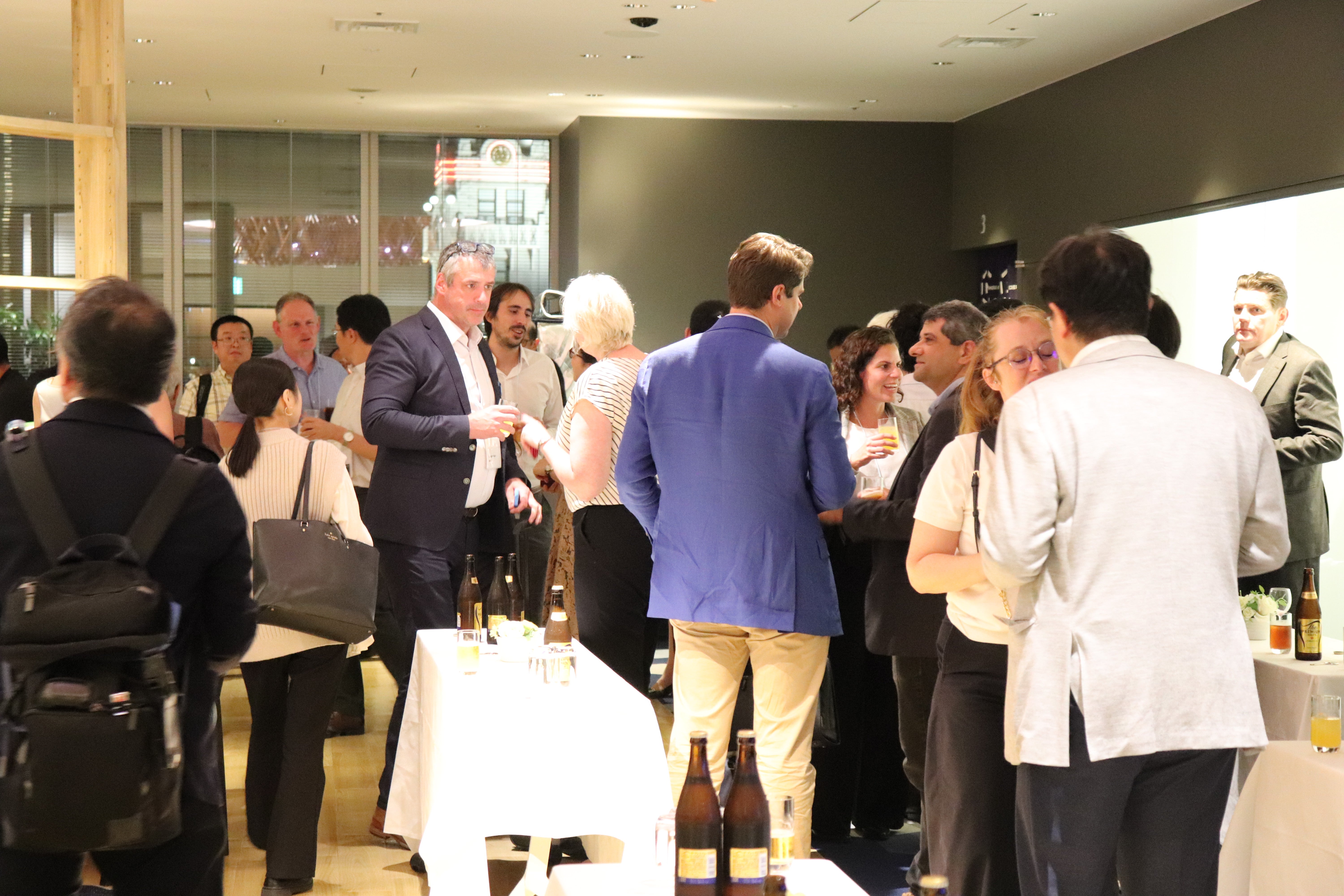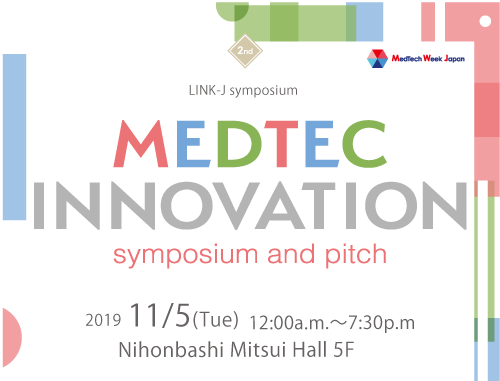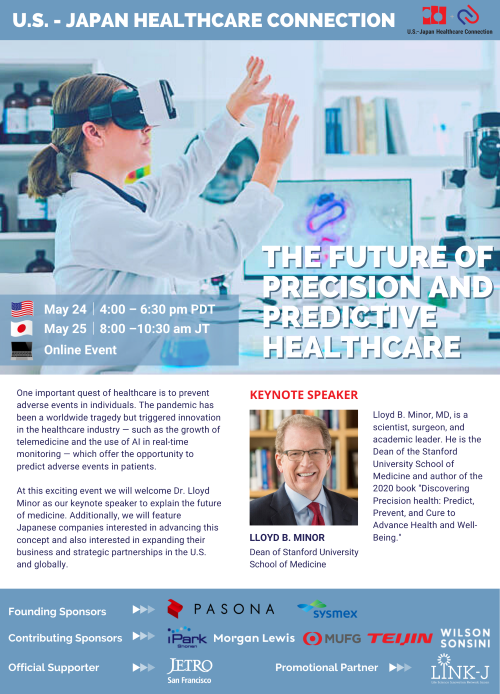LINK-J & UC San Diego Life Science Symposium #7
Life Science Innovation Network Japan has hosted Special Symposiums on life science-related topics in Tokyo in partnership with UC San Diego since 2018. The symposiums invite academic and industry leaders to discuss the advances in the topical fields and provide the audience with opportunities to learn about the frontiers of research and their implications for translational work. We have hosted symposiums on microbiome, systems biology, nano medicine, and bio-manufacturing. For the 7th edition, we will focus on healthcare engineering.
The super-aging society poses various challenges to the healthcare system. As the population ages, the number of patients with chronic diseases such as cardiovascular disease, diabetes, cancer, and dementia is on the rise, resulting in a shortage of inpatient hospital beds and skyrocketing medical and nursing care costs. In addition, the highly stressful work environment and rapidly declining birth rate have led to a shortage of medical and nursing care workers, a decline in the quality of patient care, and in some cases, the closure of local clinics. These challenges threaten to strain the healthcare system soon, increasing the need for decentralized patient care not only at medical facilities but also at long-term care facilities and in the home.
Advanced technologies are enabling health care innovations in various aspects of daily health promotion, prevention of illness, disease diagnosis and treatment, and long-term care. For example, consumers can now wear a variety of devices to monitor their physical condition daily. In some cases, the use of such devices has led to the diagnosis of diseases that the consumers themselves were unaware of. However, the types of data that consumer devices can measure are limited, and not many consumer devices are accurate enough for medical professionals to diagnose and decide on a course of treatment.
What is needed today is the development of highly functional devices that can easily and accurately measure physical conditions and biomarkers that have been difficult to measure in the past, and the establishment of peripheral technologies that will enable the practical application of such devices. At the same time, clinical research and the development of highly reliable data management systems are also essential to enable medical applications.
With a focus on technologies that enable early detection of signs of diseases, this symposium will introduce engineering efforts in Japan and the U.S. to solve pressing issues in the healthcare field.
For past UC San Diego-related events and reports, please click here.
*Language:English /Partialy Japanese(English-Japanese simultaneous interpretation available)
*English captions are available (you can choose to turn them on or off).
*Please note that LINK-J and UC San Diego are not responsible for any errors or omissions in the captions.
How to use captions: Managing and viewing closed captioning
Date: 2:30pm - 6:45pm (2:15 Door opens, 5:45~Networking), Wed, April 16th, 2025
In-person:Nihonbashi Life Science Building 2nd Floor Room 201
Virtual:Zoom Webinar
(Opens an external site)
Registration due date
On-site participation: Until 9:00am, Monday, April 14th, 2025
Online participation: Until 5:45pm, Wednesday, April 16th, 2025
Once your payment has been confirmed, you can issue a receipt from your "My Page". Please note that it may take some time for the payment to be reflected.
Program
| 時間 | 内容 |
| 2:15pm | Door Opens |
| 2:30-2:40 | Opening Remarks Akihiko Soyama (CEO, LINK-J) Dean Albert P. Pisano (Dean and Distinguished Professor, Jacobs School of Engineering / Special Advisor to the Chancellor, University of California San Diego) |
| 2:40-3:10 | Presentation "Creating a Resilient, Healthy and Long-Lived Society through Integration of Medicine, Care and Engineering" Prof. Takanori Ichiki (Professor, School of Engineering, The University of Tokyo Reseach Director, Innovation Center of Nanomedicine (iCONM)) |
| 3:10-3:40 | Presentation "Wearable, Ingestible, and Implantable Wireless Sensing Systems for Healthcare Applications" Prof. Patrick Mercier, Ph.D. (Professor and Vice Chair, Electrical and Computer Engineering; co-Director, Center for Wearable Sensors, Jacobs School of Engineering, UC San Diego) |
| 3:40-3:50 | Break |
| 3:50-4:20 | Presentation "Using AI to Improve Health Outcomes" Prof. Karandeep Singh, MD, MMSc (Joan and Irwin Jacobs Chancellor’s Endowed Chair, Associate Professor of Medicine in Biomedical Informatics, Chief Health AI Officer and Associate CMIO for Inpatient Care, UC San Diego Health) |
| 4:20-4:35 | Presentation "Enabling Trust and Confidence in Health AI" Mr. Takehito Matsuba (Chief Operating Officer, Citadel AI Inc.) |
| 4:35-5:05 | Presentation “Growth and Evolution of R&D-Driven Company in Next-generation Healthcare” Mr. Tomokazu Yoshida (Member of the Managing Board and Senior Executive officer Senior Managing Director, CTO, Sysmex Corporation) |
| 5:10-5:40 | Panel Discussion |
| 5:40-5:45 | Closing Remarks Akihiko Soyama Miwako Waga (Senior Director for International Innovation Outreach, Office of Research and Innovation, UC San Diego) |
| 5:45-6:45 | Networking Reception *In-person only |
*Speakers are subject to change without any notice.
Speakers
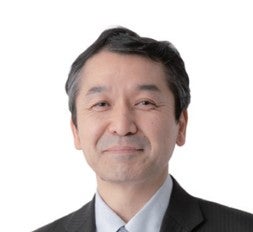 | Prof. Takanori Ichiki He received his PhD in 1995 from the University of Tokyo, Graduate School of Engineering. Since then, he has been engaged in nanobio research integrating semiconductor technology and biology at the Department of Electrical and Electronic Engineering, Faculty of Engineering, Toyo University, and the Department of Bioengineering and Materials Engineering, Graduate School of Engineering, the University of Tokyo. He has been a professor in the Department of Materials Engineering since 2016. He specializes in nanobio devices, surface and interface engineering, and nano/microfabrication. He has developed cancer diagnostic devices and analysis systems for nanobio particles such as exosomes. He has also served as a principal researcher and laboratory director since the establishment of the Innovation Center of NanoMedicine (iCONM) of the Kawasaki City Foundation for Industrial Promotion in 2015, and founded iXstream Inc. in 2018. He is currently a project leader of “Resilient and healthy society with longevity led by co-creation of medicine, engineering, and nursing” (COI-NEXT) from 2022. He is a fellow of the Japan Society of Applied Physics, a board member of the Japanese Society of Extracellular Vesicles, and chairman of the Kawasaki Care Design Consortium. |
 | Prof. Patrick Mercier, Ph.D. He is currently a Professor and Vice Chair in the Department of Electrical and Computer Engineering at the University of California San Diego (UC San Diego), where he is also the co-Director of the Center for Wearable Sensors and the Site Director of the Power Management Integration Center. His research interests include the design of energy-efficient microsystems, focusing on the design of RF circuits, power converters, and sensor interfaces for miniaturized systems and biomedical applications. |
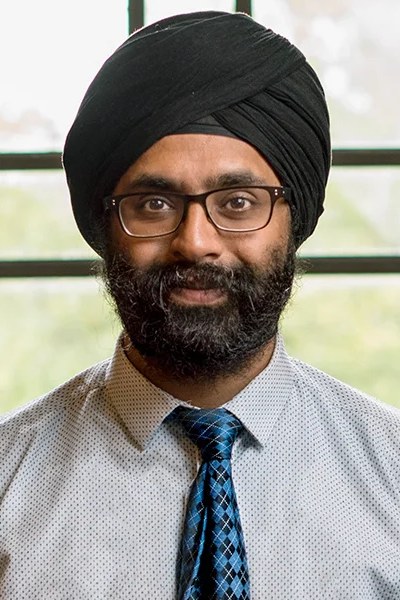 | Prof. Karandeep Singh, MD, MMSc He completed his internal medicine residency at UCLA Medical Center, where he served as chief resident, and a nephrology fellowship in the combined Brigham and Women’s Hospital and Massachusetts General Hospital program. He completed his medical education at the University of Michigan Medical School and holds a master’s degree in medical sciences in Biomedical Informatics from Harvard Medical School. |
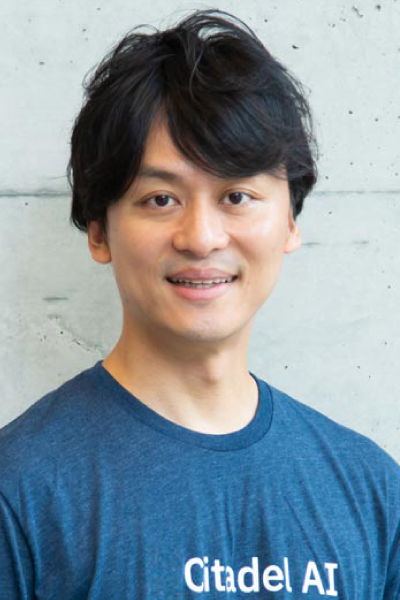 | Mr. Takehito Matsuba Takehito serves as the Chief Operating Officer at Citadel AI which develops tools to evaluate, monitor, and improve AI systems. Previously, Takehito led the launch of Google Health’s Japan business and the first joint research project on AI-assisted breast cancer screening with a leading cancer hospital in Japan. Prior to Google, he worked with Mitsubishi Corporation where he led investments, M&A, and new business development in the healthcare industry, and served as Director of North American Healthcare Business in the Bay area. He obtained an MBA from MIT Sloan School of Management. |
.png) | Mr. Tomokazu Yoshida After graduating from Okayama University Graduate School in 1995 with a Ph.D. in Pharmacology, I engaged in drug discovery research in the fields of cardiology, central nervous system disorders, and oncology at national research institutions and pharmaceutical companies. I joined Sysmex in 2000. Subsequently, I served as a visiting researcher in the Department of Breast Medical Oncology at MD Anderson Cancer Center, where I was involved in the research and development of diagnostic principles and practical applications for cancer, chronic diseases, and central nervous system disorders, as well as conducting clinical research at U.S. medical institutions. Additionally, as a director of Medicaroid Corporation, a joint venture established by Kawasaki Heavy Industries and Sysmex, I contributed to the development and market introduction of the medical robot "hinotori™ Surgical Robot System." At Sysmex, I was appointed Director and Senior Executive Officer in 2021. Since 2023, as Director, Senior Executive Officer, and CTO, I have been overseeing technology strategy and research and development, supporting Sysmex's technological innovation. |
Presentation Summary
Prof. Ichiki's presentation
As the birthrate declines and the population ages, the creation of a “sustainable medical and care” system is an urgent issue. Innovation is indispensable to solve various problems faced by the medical field, such as shortage of medical personnel, increase in the number of elderly patients with chronic diseases, and promotion of home medical care. I will introduce the Project CHANGE, which aims to “build a resilient, healthy and long-lived society through medical-engineering and nursing collaboration,” and the “Kawasaki Care Design Consortium,” which aims to find ideas from the local nursing care scene and implement devices and services to support true needs of care persons through accelerating industry-academia collaboration.
Prof. Mercier's presentation
Wearable, ingestible, and implantable devices hold considerable promise to diagnose, monitor, and treat various medical conditions and/or track the real-time status of athletes. However, most current generation devices only monitor a limited number of physical and electrophysiological parameters that are, in many cases, only peripherally related to many health conditions or fitness enterprises. Furthermore, many such devices are large, bulky, and rigid, thereby precluding seamless integration into daily life. Addressing these issues requires: 1) development of new sensor technologies that provide more actionable data in thin, flexible form factors; 2) engineering of supporting electronic infrastructure to condition, digitize, and wirelessly communicate data in an extremely energy efficient manner; and 3) new data analytics to process and understand newly generated data streams. This presentation will discuss emerging sensor technologies that can monitor physiochemistry (e.g., glucose, blood alcohol concentration, and lactate) in thin, flexible, and energy-efficiency devices, alongside a brief look at what kind of analytics are necessary to parse and understand this data. We will also cover some integrated circuit building blocks and architectures that make acquisition and telemetry of sensed information so energy-efficient that that they can be easily powered from new local energy sources (e.g., glucose biofuel cells).
Prof. Singh's presentation
Despite the widespread implementation of AI tools in healthcare, few have proven effective in meaningfully improving health outcomes. This is due to both challenges in AI implementation within health systems and in generating high-quality evidence in real-world settings. In this talk, Dr. Singh will review early evidence on the effectiveness of health AI systems going back to the 1960s, progress in subsequent decades, and focus on the current state of evidence for predictive and generative AI tools on their ability to improve health outcomes. The talk will conclude with a discussion of the future, focused on changes needed to scale the impact of AI on health.
Mr. Matsuba's presentation
The EU AI Act, the world's first comprehensive AI regulation, was enacted in August 2024, and Japan is actively discussing its first AI law, fueling global debates on trustworthy AI. Ensuring AI safety is a top priority for developers, providers, and users worldwide, as it is crucial for both patient safety and corporate risk management. In this session, Citadel AI, a global leader in AI safety technology, will introduce its approach to safety and quality evaluation for AI-powered Software as a Medical Device (SaMD) and Generative AI models (Medical LLMs).
How to watch online
- This event will use Zoom Webinar. Please register in advance.
- After registering, you will receive an email with the viewing URL.
- Please make sure to familiarize yourself with the webinar controls beforehand.
Participation Fee
Online participation: Free
On-site participation: Free for LINK-J members and supporters / 2,000 JPY for non-members
※ For LINK-J supporters, LINK-J members, and press, please contact LINK-J to receive a discount code.
Capacity
In-person: 80 people
Virtual: 1,000 people
*First come first served basis
Organizer
Organizer:LINK-J
Co-organizer:University of California San Diego
Contact
LINK-J
contact@link-j.org
